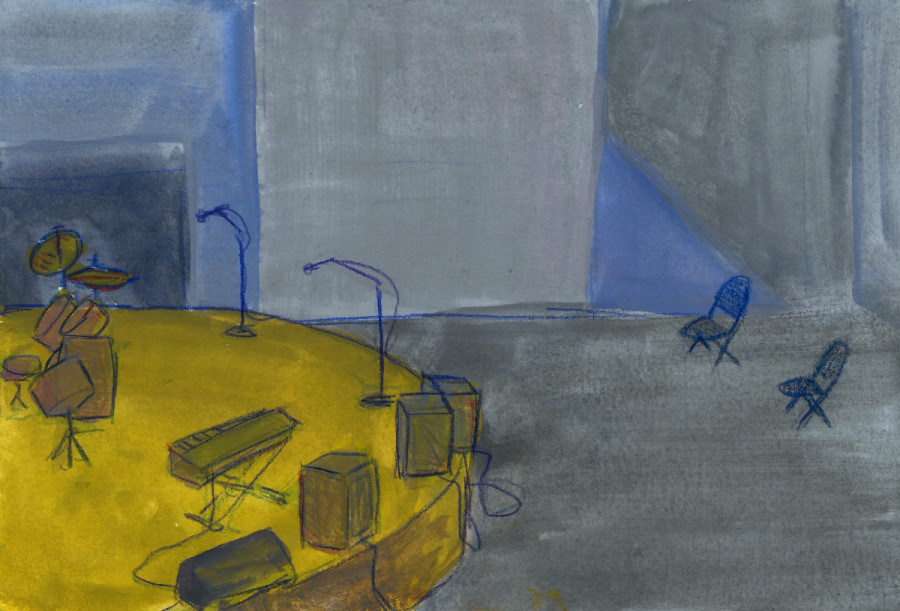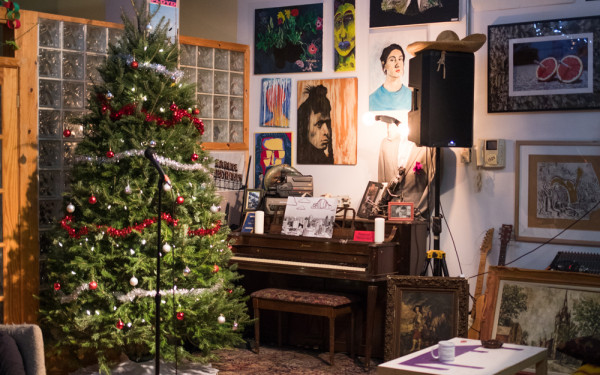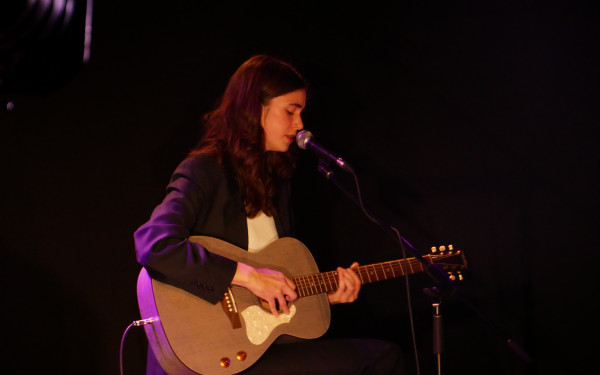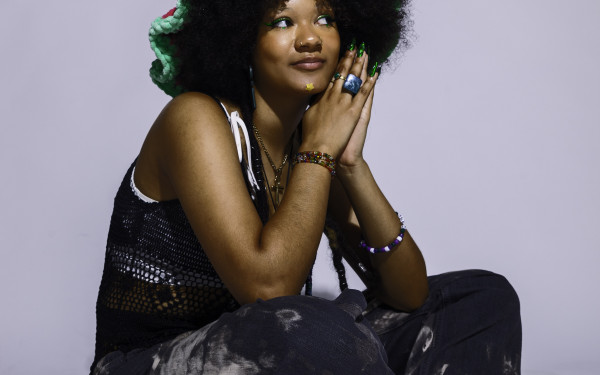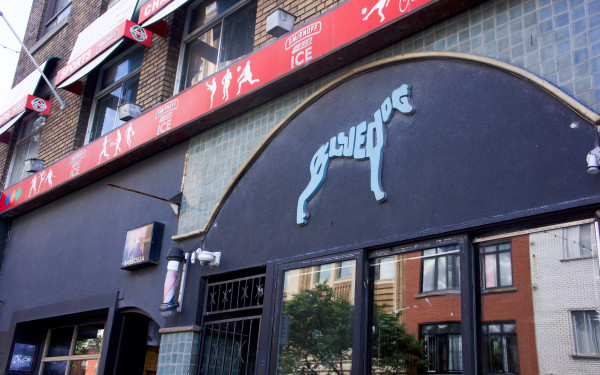Digital Alternatives to Host Performances Take Over as Music Venues Close
Artists Relate Benefits and Inconveniences of Online Streaming
Like many local artists, Janette King is continuing to share her music despite having cancelled around 15 performances due to the COVID-19 outbreak in Montreal.
“We’re doing what we can to share our art and also to survive,” King said.
Montreal’s music venues are among the non-essential businesses closed since March 25 to reduce the spread of COVID-19, but artists and music venues are keeping Montrealers entertained by streaming their shows online.
Since the beginning of the confinement period, King has become more active on social media and has done more live streams.
Although the entertainment aspect while doing a live stream lacks the human interaction that normally accompanies an on-stage performance, there are still benefits to it.
“The good thing about [doing a live stream performance] is you can really let yourself go. There isn’t much pressure. You can share your art. It isn’t as stressful,” King said.
For King, performing at home can also create a more intimate connection with her audience. “People can also see your space, which is kind of nice,” she said. “[They] can see where you live and how you play your music.”

Other artists agree. Montreal-based singer Hanorah enjoys the freedom of being able to play the songs she wants from the comfort of her bedroom.
Online streaming can also enable more communication between artists and their audience, despite the physical disconnect.
“I can take more time between songs and people’s requests. I’ve been playing songs I wouldn’t normally put in my sets, which is kind of nice,” Hanorah said.
However, switching from performing in a physical space to a digital one can present a few challenges for many artists. Not everyone is familiar with streaming services such as Zoom or Twitch, and it can also be difficult if artists rely on Instagram or Facebook for visibility.
“It seems the algorithm changes all the time, and when you’re opening your phone and you see 15 live videos, it’s overwhelming,” Hanorah said.
For both King and Hanorah, one of the biggest challenges to streaming online is competing for space and the attention of viewers alongside other artists who are making the same transition. The overabundance of live streams and online concerts makes it difficult to maintain an audience.
“When you’re doing a physical performance, there’s only a certain number of venues in the city,” King said. “But now everything is online, so it’s like you can go see everyone perform at any night.”
“The good thing about [doing a live stream performance] is you can really let yourself go. There isn’t much pressure. You can share your art. It isn’t as stressful.” — Janette King
As artists are transitioning to online platforms, certain organizations are helping them cope with these difficult circumstances by offering webinars and workshops online. That’s what the Freestanding Room—a non-profit organization that offers memberships and rentals to artists—is now doing to help Montreal’s artist community.

“Adapting to an isolationist lifestyle for a community of people accustomed to working together, sharing space, and developing their art in concert can be a challenge,” said Ryan Bommarito, an administrator of the Freestanding Room.
“We’re looking into cooking classes, exercise webinars, tax-filing workshops for artists, online presentation tool kits, and how to offer pay-what-you-can options for shows,” Bommarito said.
In mid-March, the Quebec government banned all indoor events of more than 250 people.
At the time, it didn’t affect all music venues in Montreal including The Diving Bell Social Club as it has a capacity of 170 people.
On March 21, Montreal music venue The Diving Bell Social Club hosted “Stay Home Sessions: A Live Streamed Relief Fundraiser”—a live-streamed fundraiser bringing together local artists that were already part of the venue’s community.
“I am actually surprised by how well the first one went,” Wrinch added.
The fundraiser, which was supposed to be a weekly event, due to the stricter restrictions on gatherings.
The artists who took part in the event performed on stage at the venue, since social distancing policies were less rigorous at that time and people were still able to gather in small crowds.
“We were trying to do a nice little event to both promote social isolation but also to keep the community together,” said co-owner Austin Wrinch.
Hanorah and King were also part of the March 21 event, alongside artists such as Maryze, Laps, Dish Pit, and Meggie Lennon and comedians Tranna Wintour, Inés Anaya, and Elspeth Wright.
Viewers could donate during days leading up to the show as well as during the live stream. By the end of the show on Saturday night, they had collected around $3,500 for the artists and the venue.
Online streams will continue for the foreseeable future and assemble crowds through digital platforms without the need to host gatherings in the physical world.
They can also carry over into the post-pandemic arena. “It’s exciting to see what will come of it,” Bommarito said.

